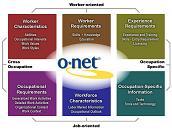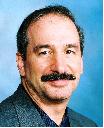Follow these steps to develop a career road map.
Introduction: Your plan will probably not remain the same over the course of your life. As circumstances change, plans adapt. This is important to remember, so that choosing a career is not an overwhelming process.
What are your Interests? It is one thing to go to work or have a job. A career is typically more long-term, or sometimes your job becomes your career. Being engaged by what you choose will make you more successful.
Click here to Use the Interest Profiler and document your thoughts on paper.
|
|
 What are your aptitudes? Self-discovery is an important process. We do it formally and informally throughout life, and often times we just don't recognize it. What are your skills, strengths and weaknesses today? Answering this yourself, and not based on the opinion of others, is a good basis from which to start. A good experiment is to begin with a skills assessment of where you are right now and how it relates to current occupations and jobs in the market. This could be accomplished using free online tools prepared by the US Department of Labor or other organizations. One of the better tools is offered by O*NET. It allows you to select the skills you think you have or can acquire through education or training, then O*NET helps you narrow down your potential occupation choices to find what types of jobs or employment opportunities for which you are currently a good match. What are your aptitudes? Self-discovery is an important process. We do it formally and informally throughout life, and often times we just don't recognize it. What are your skills, strengths and weaknesses today? Answering this yourself, and not based on the opinion of others, is a good basis from which to start. A good experiment is to begin with a skills assessment of where you are right now and how it relates to current occupations and jobs in the market. This could be accomplished using free online tools prepared by the US Department of Labor or other organizations. One of the better tools is offered by O*NET. It allows you to select the skills you think you have or can acquire through education or training, then O*NET helps you narrow down your potential occupation choices to find what types of jobs or employment opportunities for which you are currently a good match.
Click here to Visit the O*NET Skills Assessment Survey.
|
|
How do you leverage your likes, skills and abilities? The outlet is either employment or a hobby. Explore both. Can you turn your hobby into employment or business? Almost every hobby has supporting businesses, from photography to golf course management. Just because we think of a hobby at which we are amateurs, does not mean we can't convert our interests into a real potential career. Think about and research the top five or ten things you like to do the most.
Click here to Investigate the Industries next related to those interests.
|
|
How will your career mesh with your personality? Further self-assess your aptitudes (what you are naturally able to do); review your interests (like working out doors with plants or helping people); review your skills in more detail (do you know how to balance your checking account monthly and do it routinely or you know how to prepare a five course meal coordinated and well-timed); review your personality traits (do you tend to be shy or outspoken) and review your value system (what matters to you in life).
Click here to Visit the Self-Assessment Center.
|
|
Do you have the credibility to be successful? Credentials are earned. They can be conferred by attending formal educational programs, such as those offered by college and universities. They can be earned by being an apprentice or through self-discovery and demonstration or by working for someone else who conveys the expertise and assessment of your contribution by paying you and accepting your work. The formal and informal aspects of credibility are ways in which potential employers or clients select you to perform the work. That may mean certifications, licensing and advanced degrees that reflect our learning, skills, knowledge and abilities. References and testimonials are informal ways we convey credentials. Check what credentials are needed for a specific occupation and the related jobs.
Click here to Investigate and Explore Career Choices.
|
| Are you dedicated? This final step is the hardest. You have to muster the energy, motivation and will to pursue the career plan you have set in motion. That may mean going back to college, or that may mean taking an entry level position. Whatever path you take, remember life is a process not simply a set of destinations. |
|
| Written by AcademyOne's CEO and Founder David K. Moldoff who has worked in higher education for over thirty five years developing student centered enrollment systems since the 70's. Mr. Moldoff graduated from Drexel University through the cooperative education program and majored in economics with a minor in marketing. |
 |
|